Pradeep Kumar
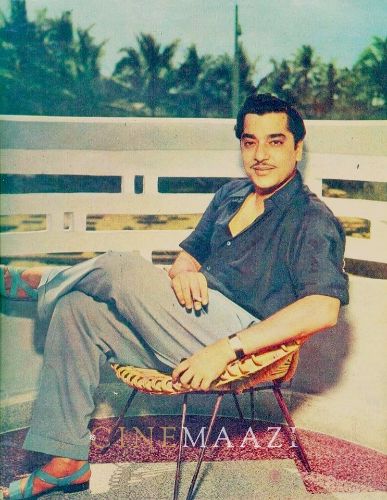
Subscribe to read full article
This section is for paid subscribers only. Our subscription is only $37/- for one full year.
You get unlimited access to all paid section and features on the website with this subscription.
Not ready for a full subscription?
You can access this article for $2 , and have it saved to your account for one year.
- Real Name: Sital Batabyal
- Born: 4 January 1925 (West Bengal)
- Died: 27 October 2001 (Calcutta)
- Primary Cinema: Hindi
- Children: Reena, Meena, Beena Banerjee
First choice to play royalty onscreen with his noble good looks and dignified bearing, Pradeep Kumar was invariably cast as a prince or king in the course of a career that was marked by a long spate of successes. Working in Hindi and Bengali language films from the 1940s till the 1980s, his memorable films include Anarkali (1953), Adalat (1958), Aarti (1962), Taj Mahal (1963) and Raat Aur Din (1967). He enjoyed a prolific career as a leading man, followed by multiple films that featured him in character roles.
Born on 4 January 1925 to orthodox Brahmin parents in West Bengal, Sital Batabyal was 17 when he revealed his interest in acting to his disapproving father. Starting with learning the ropes on stage, he was noticed during one of his performances by well-known filmmaker Debaki Bose. Thus, Pradeep Kumar made his debut in the Bengali film, Alaknanda (1947), which was followed by another Bengali film, Biyalish (1951). Moving to Bombay to pursue his passion, he took up work with Filmistan Studio. Brushing up on his Hindi and learning Urdu, he landed a role, and an important one at that, in Anand Math (1952), which was his first Hindi film. Co-starring Prithviraj Kapoor and Geeta Bali, the film was set in the 18th century and was imbued with nationalistic fervour. The song Vande Mataram from the film became an enormous hit.
The film was followed by two more that added immensely to his standing. Anarkali (1953) with Bina Rai was woven around the popular legend of Mughal prince Salim's doomed relationship with Anarkali. Nagin (1954) with Vyjayanthimala, portrayed the romance between lovers belonging to rival snake-catching tribes. Backed by great songs, the films were widely appreciated, even as audiences were increasingly smitten by Pradeep's regal bearing, including his dexterous fencing in Anarkali and the scene in Nagin which showed a python play on his wrist.
His spate of success continued in the second half of the 1950s—in 1956 itself, he had 10 releases—as he signed films with V Shantaram such as Subah Ka Tara (1952) and Raj Kapoor in Jagte Raho (1956). However, the 60s were a less bright decade for the actor, though he did strike the bull’s eye with films like Ghoonghat (1960), Aarti (1962) and Taj Mahal (1963).
Pradeep Kumar made a successful pair with Meena Kumari with whom he worked in no less than seven films including Adl-E-Jahangir (1955), Bandhan (1956), Chitralekha (1964), Bahu Begum (1967), Bheegi Raat (1965), Aarti (1962) and Noor Jehan (1967). He starred in eight films with Mala Sinha, namely Naya Zamana (1971), Hamlet (1954), Badshah (1954), Detective (1958), Fashion (1959), Ek Shola (1956), Duniya Na Maane (1959), and Mitti Mein Sona (1960). Whether Nimmi in Jayshree (1956), Nargis in Adalat (1958), Nutan in Heer (1956), all the top heroines of the 50s were paired with Pradeep. He and Madhubala did at least six films together including Rajhath (1956), Yahudi Ki Ladki (1957), Gateway Of India (1957), Police (1958), Mahlon Ke Khwaab (1960) and Passport (1961), but did not make it as a hit pair. Incidentally, it was his pairing with his Nagin heroine Bina Rai that succeeded again, lifting his career out of the slump with Ghunghat (1960) and Taj Mahal (1963), whose eternal favourite songs like Jo vaada kiya still weave their spell on the airwaves.
However, he failed to be signed up opposite any of the top heroines of the 60s like Sadhana, Saira Banu and Sharmila Tagore, and bore the brunt of this loss. While he did work with Asha Parekh in Ghunghat (1960) and Meri Surat Teri Aankhen (1963) and with Waheeda Rehman in Raakhi (1963), in a few years he had moved on to character roles with Sambandh (1969) and Mehboob Ki Mehndi (1971).
Kumar had directed and also featured in Do Dilon Ki Dastaan (1966). The next decade saw him featuring in notable films like the Amitabh Bachchan and Rekha starrer Do Anjaane (1976), Basu Chatterjee’s Safed Jhoot (1977), and Dharmendra and Zeenat Aman starrer Dharam-Veer (1977), besides making a guest appearance in Basu Chatterjee’s comedy Khatta Meetha (1978). While his next few releases like Parmatma (1978), Amar Shakti (1978), and Aakhri Insaaf (1980) did not fare well, he was part of the very successful Manoj Kumar film, Kranti (1981).
Success came his way again with Chalti Ka Naam Zindagi (1982) and Teesri Aankh (1982). He fittingly played an emperor in Kamal Amrohi’s Razia Sultan (1983), which won considerable critical acclaim. Small roles in Duniya (1984), Purana Mandir (1984), Oonche Log (1985), Waaris (1988), Aakhri Baazi (1989) and Jaan-E-Wafa (1990) followed post which he retired from the limelight. Pradeep Kumar passed away in Calcutta on October 28, 2001, after a long and successful reign in films at the age of 76.
References
Image Courtesy: Filmfare
-
Filmography (118)
SortRole
-

Badmaash 1998
-
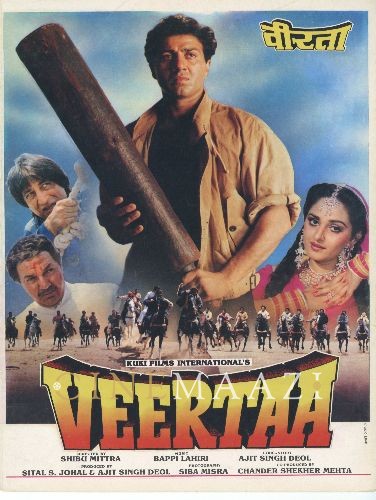
Veertaa 1993
-
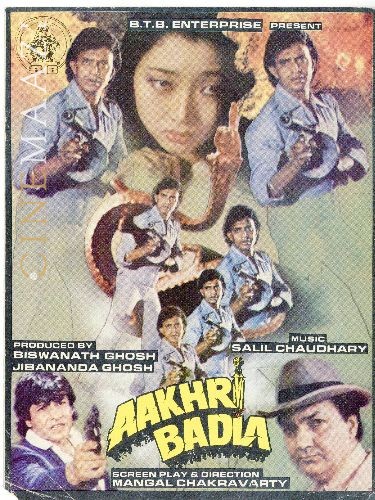
Aakhri Badla 1989
-
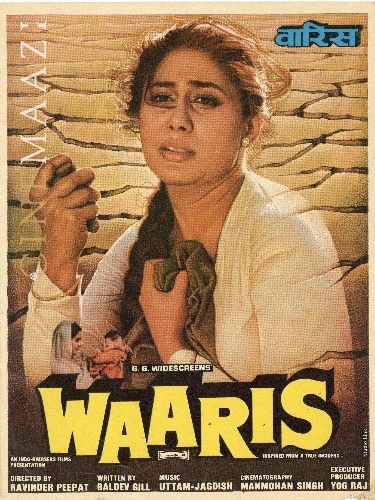
Waaris 1988
-
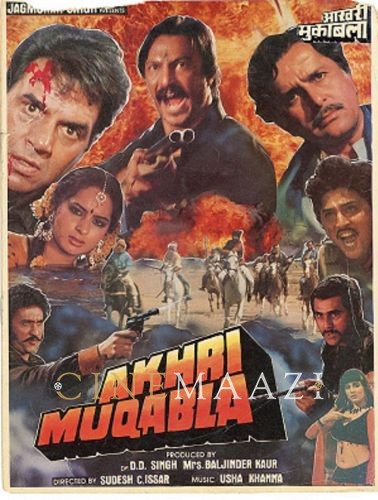
Akhri Muqabla 1988
-
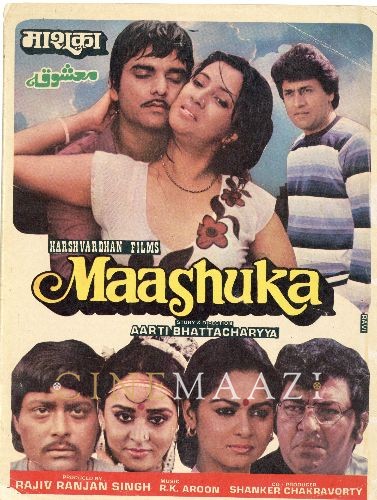
Maashuka 1987
-
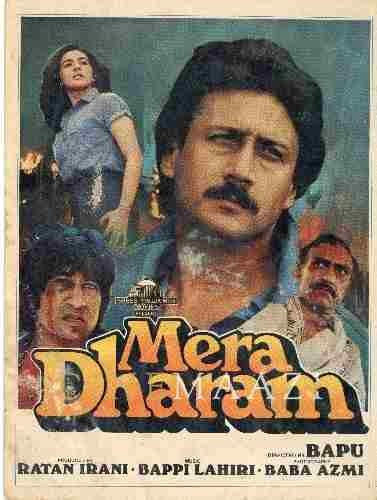
Mera Dharam 1986
-
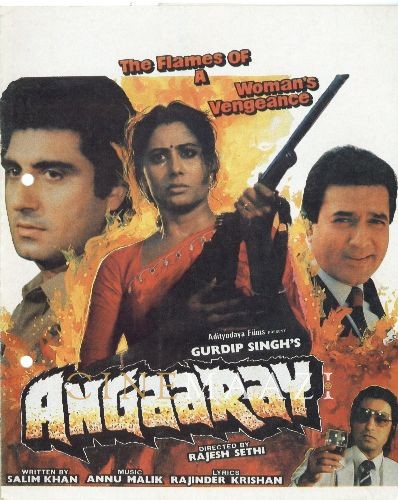
Angaaray 1986
-

Maha Shaktimaan 1985
-
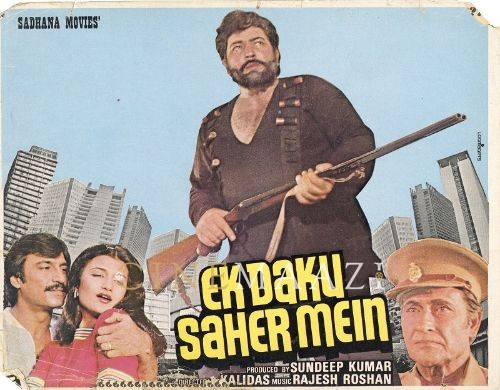
Ek Daku Saher Mein 1985
-
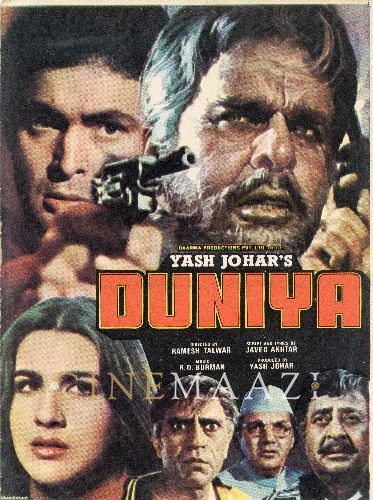
Duniya 1984
-

Purana Mandir 1984
-







.jpg)



